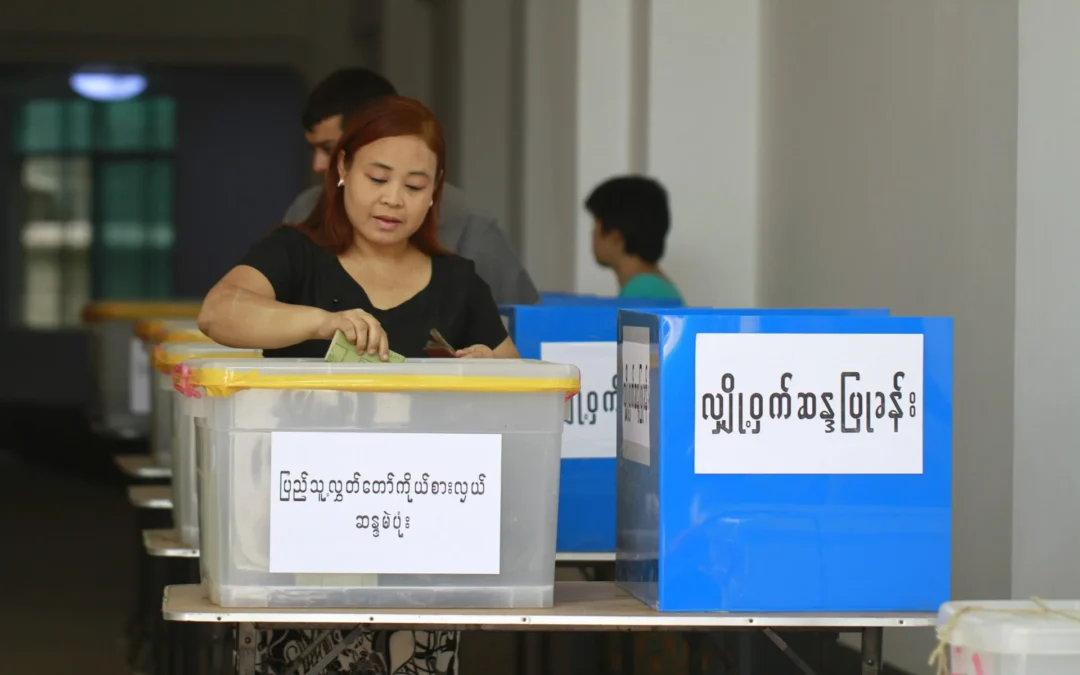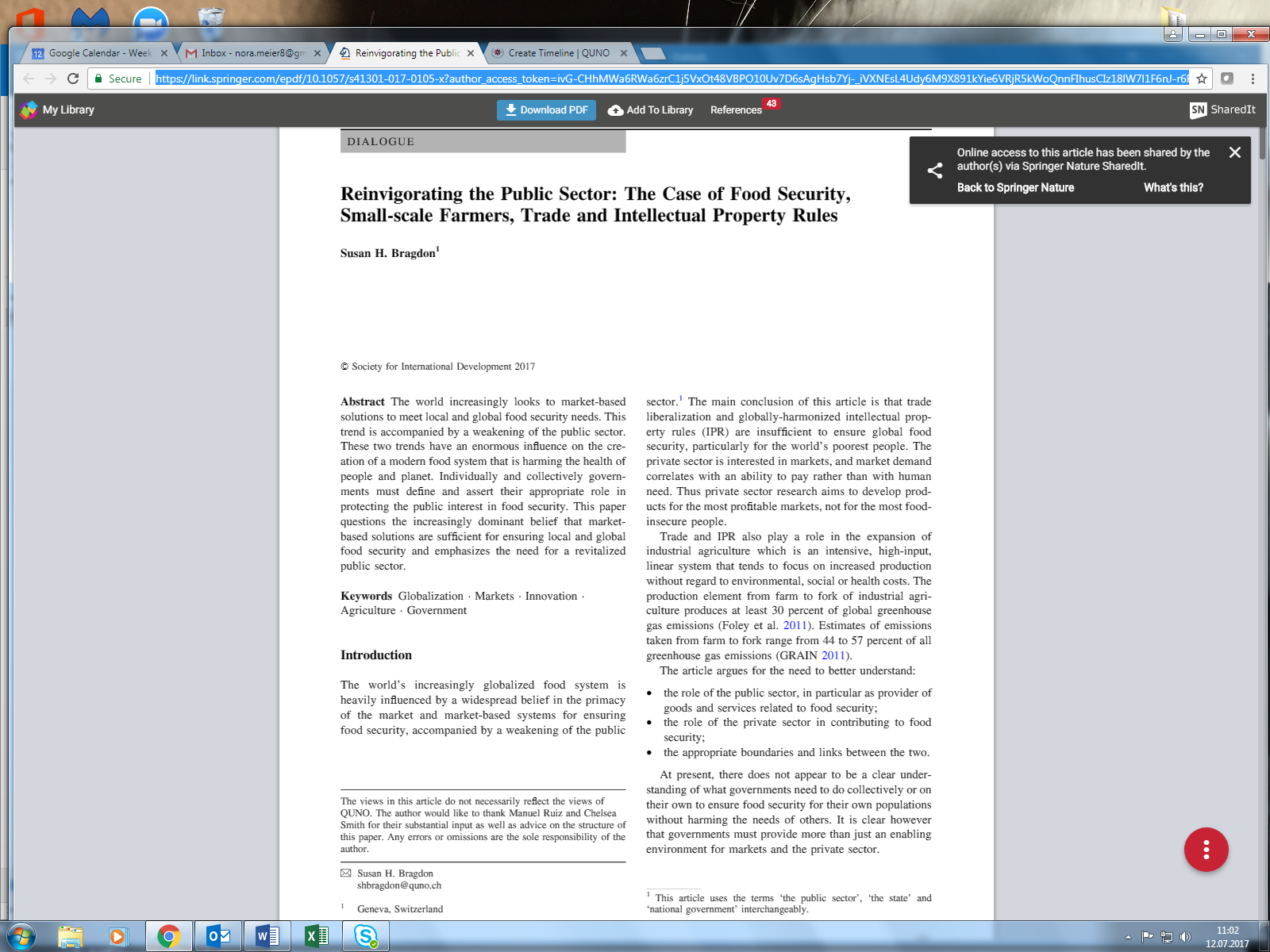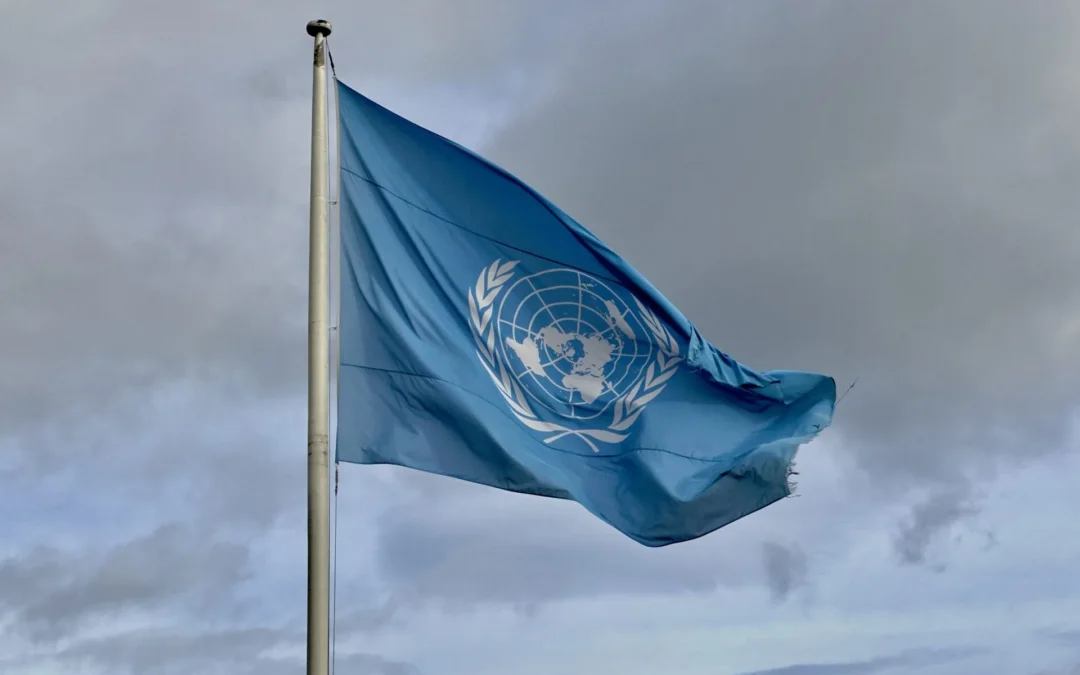In this recently published paper in the Society for International Development (2017), QUNO’s Food & Sustainability Representative Susan H. Bragdon explores the two interlinked trends of using market-based solutions to end hunger and the weakening of the public sector in ensuring local and global food security. She argues that both of these phenomena play an important role in the creation of a modern food system that is harming the health of people and planet. Therefore, she calls upon governments to define and assert their appropriate roles in the protecting the public interest in food security and emphasizes the need for a revitalized public sector.

Myanmar “sham elections”: QUNO hosts Quaker House briefing
On 2 December, the Quaker UN Office hosted diplomats at Quaker House for a private briefing in advance of the elections in Myanmar that began on 28 December 2025. QUNO Director, Sarah Clarke, opened the meeting, noting that “the world will be watching carefully to see how the international community responds to the vote.” Sean Dunne, an expert who has supported election observation with the UN and the Carter Center, including in Myanmar, served as an outside briefer. In his remarks, Sean emphasized that the Myanmar general elections, which are being conducted by the military regime that overthrew the democratically elected government following elections in 2020, “fail to meet any recognized international benchmark for credibility or genuineness.” Sean concurred with UN experts, numerous Human Rights organizations, and media outlets describing the elections as a “charade” or “sham election” intended to “solicit recognition from foreign governments and legitimize the continuation of military rule, rather than reflect the genuine will of the Myanmar people.” In Myanmar, voting kicked off on 28 December 2025, with polls being held in roughly a third of Myanmar’s townships. Despite two more voting phases scheduled on 11 and 25 January 2026, several million people, 56 townships, and numerous political parties, including the winner of Myanmar’s last credible election, the National League for Democracy, have been excluded by the military or have chosen not to participate. As Sean explained, these exclusionary factors amount to “an incredibly sophisticated form of election engineering.” The implementation of biometric voting and surveillance technology, new laws criminalizing criticism of the election, and manipulation of representative quotas in Myanmar’s […]






